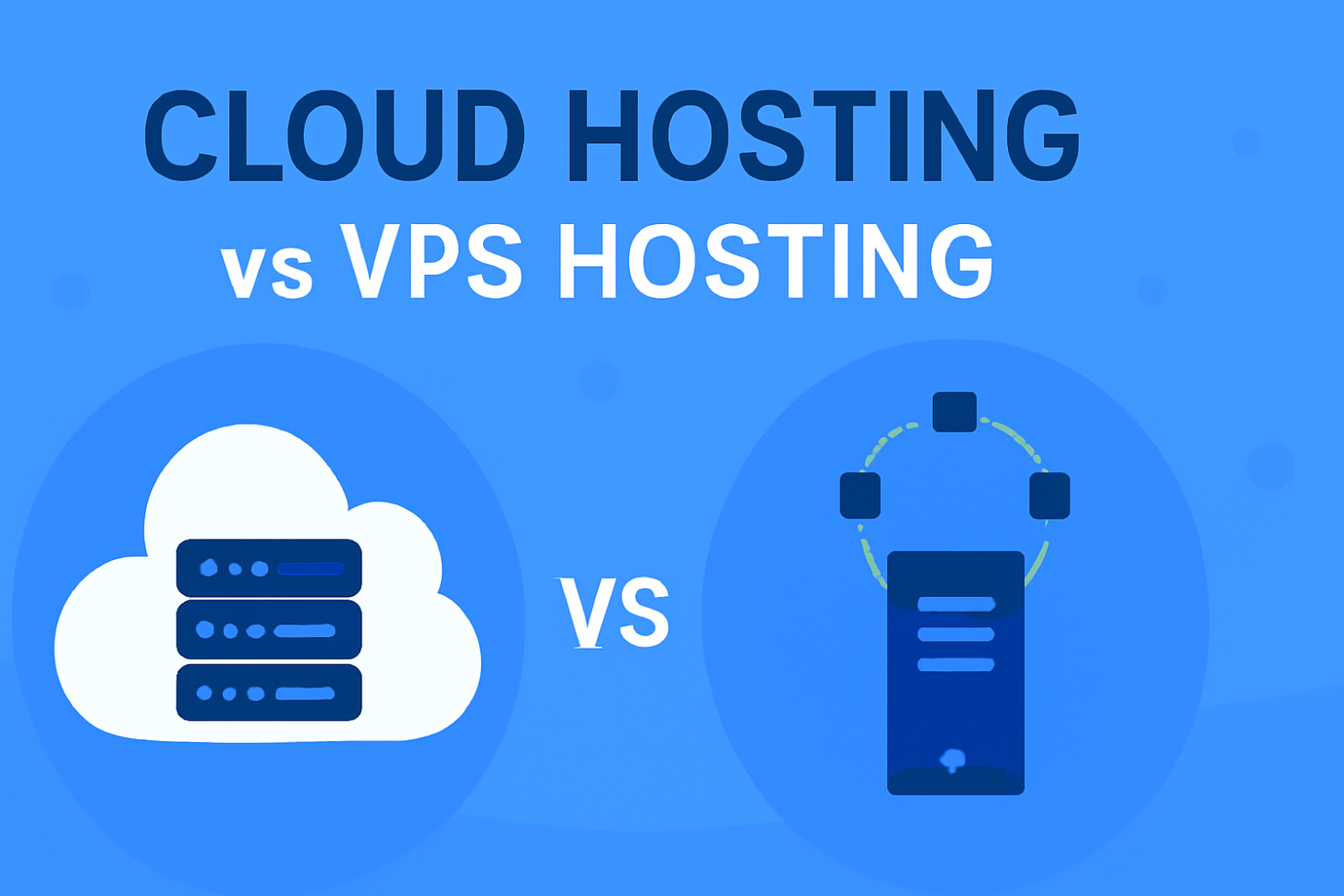Cloud Hosting vs VPS Hosting: Choosing the Best Solution for Your Business

Understanding Cloud Hosting
Cloud hosting is a modern web hosting solution that harnesses the power of a network of remote servers to store, manage, and process data. Instead of relying on a single physical server, cloud hosting utilizes a cluster of interconnected servers that can work together to deliver flexible and efficient services. This architecture enables businesses to access the resources they need on demand, significantly improving their ability to scale operations in response to fluctuating traffic or changing business needs.
One of the primary advantages of cloud hosting is its remarkable scalability. Organizations can easily expand their resources by adding or removing server capacity as required, without the need for significant infrastructure changes. This feature is particularly beneficial for businesses that experience variable traffic patterns, such as e-commerce sites during peak holiday seasons or those launching new marketing campaigns. By leveraging cloud solutions, companies can avoid downtime and ensure consistent performance, even during periods of high demand.
In addition to scalability, cloud hosting offers enhanced reliability. With data distributed across multiple servers, if one server fails, the remaining servers can ensure continuity of service. This redundancy significantly minimizes the risk of data loss and downtime, making cloud hosting an ideal choice for businesses that cannot afford disruptions. Furthermore, cloud hosting solutions often incorporate robust security features and automated backups, providing additional peace of mind regarding data integrity and protection.
Flexibility is another hallmark of cloud hosting. Businesses can tailor their hosting environment to suit specific requirements, selecting from various configurations, operating systems, and applications that align with their operational objectives. This adaptability is particularly advantageous for companies dealing with sensitive data or those navigating regulatory compliance environments. Given the diversity of use cases—ranging from startups to large enterprises—cloud hosting stands out as a powerful option for organizations looking to optimize their web hosting strategies.
Exploring VPS Hosting
Virtual Private Server (VPS) hosting is a popular web hosting solution that allows multiple users to share a single physical server while maintaining dedicated resources. By partitioning the server into several virtual servers, VPS hosting combines the affordability of shared hosting with the performance and control typically associated with dedicated hosting. This innovative approach provides businesses with a balance of cost-efficiency and increased capabilities.
One key characteristic of VPS hosting is its enhanced performance. Each VPS operates independently, ensuring that the resources allocated—including CPU, RAM, and disk space—are exclusively available to the user. This means that unlike shared hosting environments, where resource competition can lead to slowdowns, VPS hosting delivers reliable performance even during traffic spikes. This performance boost is particularly beneficial for businesses that experience fluctuations in website traffic, allowing them to scale with ease without compromising on speed or reliability.
Another major advantage of VPS hosting is the greater control it offers to users. Businesses have root access to their virtual server, enabling them to install custom software, configure server settings, and manage security measures tailored to their specific needs. This level of customization is invaluable for companies with unique hosting requirements, as it allows them to optimize their server environment for performance, security, and functionality.
VPS hosting is particularly appealing for growing businesses that require guaranteed resources and more granular control. For instance, e-commerce websites that need to handle increasing traffic while maintaining fast load times can significantly benefit from VPS solutions. Similarly, businesses running resource-intensive applications often find VPS hosting to be a more suitable option compared to shared hosting, as it provides the necessary environment to ensure optimal application performance.
Key Differences Between Cloud Hosting and VPS Hosting
When evaluating cloud hosting and VPS hosting, it is crucial to understand their distinct features and how they cater to different business requirements. One of the primary differences lies in scalability. Cloud hosting is known for its ability to automatically scale resources based on demand. This means that businesses can easily adjust their resource allocation during peak times without experiencing downtime or performance issues. Conversely, VPS hosting typically provides a predetermined amount of resources, which can be sufficient for stable workloads but may struggle during unexpected surges in traffic.
Cost is another significant factor when comparing these two hosting solutions. Cloud hosting often operates on a pay-as-you-go model, which allows businesses to only pay for the resources they consume. This can lead to substantial savings, especially for businesses with fluctuating needs. VPS hosting, however, usually comes with a fixed monthly fee that covers the allocated resources. This pricing structure can be advantageous for businesses that prefer predictable budgeting, although it may not always be the most cost-effective solution in comparison to cloud hosting.
Performance metrics also differentiate cloud hosting from VPS hosting. Cloud infrastructure can distribute workloads across multiple servers, resulting in enhanced performance and redundancy. If one server fails, others can take over, leading to minimal impact on the service. On the other hand, VPS hosting relies on a single physical server, which may present performance limitations if that server encounters issues.
Finally, the level of technical management required varies between the two hosting types. Cloud hosting typically involves more complex management due to its intricate infrastructure, often necessitating advanced technical skills for optimization and maintenance. In contrast, VPS hosting can be easier to handle for smaller businesses with limited resources, as users have more control over their virtual environment with less complexity involved.
When to Choose Cloud Hosting or VPS Hosting
When determining whether to opt for cloud hosting or VPS hosting, it is essential to align the choice with specific business needs and operational goals. Each hosting solution offers distinct advantages that cater to varying scenarios. For startups, for example, flexibility is paramount; thus, cloud hosting may be the most suitable option. Its scalability allows businesses to adapt resources dynamically as traffic fluctuates, which is particularly beneficial during periods of growth or marketing campaigns. Startups often prefer the pay-as-you-go pricing model inherent in cloud hosting, providing a cost-effective solution while minimizing initial investments.
Conversely, mid-size companies that require dedicated resources and control over their environments might find VPS hosting to be the better choice. VPS hosting enables users to enjoy the benefits of virtualization, offering a more significant degree of consistency and performance than shared hosting. This makes it ideal for businesses with moderate traffic levels, as they can allocate appropriate resources without experiencing the limitations often associated with shared environments. Furthermore, VPS hosting allows for customizable configurations, providing the flexibility needed to handle specific workloads.
For larger enterprises that demand high availability and robust performance, cloud hosting is often recommended due to its fault-tolerant architecture. These organizations frequently experience high traffic volumes and require a hosting solution that can handle sudden increases in demand without compromising service continuity. Budget considerations play a critical role here as well; while cloud hosting may require more significant investment upfront, the long-term benefits in performance and reliability can justify the costs. Ultimately, management capabilities, including the ability to oversee complex deployments or the need for server management, also influence the decision-making process between cloud and VPS hosting solutions.










